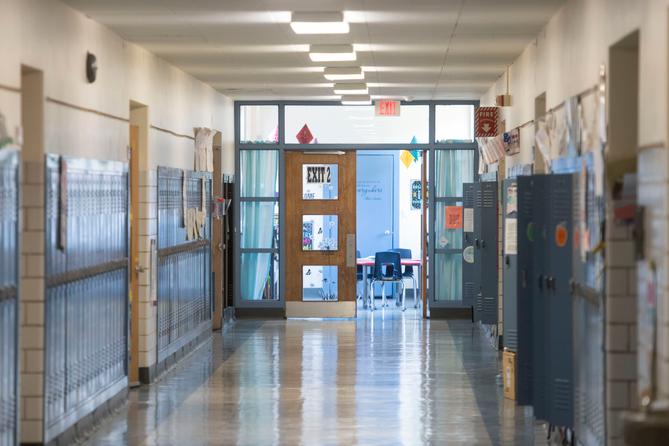This story was produced by the State College regional bureau of Spotlight PA, an independent, nonpartisan newsroom dedicated to investigative and public-service journalism for Pennsylvania. Sign up for our regional newsletter, Talk of the Town.
BELLEFONTE — Pennsylvania’s poorest districts won’t receive $100 million in new money to help fill vacancies and reduce funding deficits after lawmakers diverted those dollars to school construction projects.
Roughly half of the 100 “Level Up” schools serve students in rural counties where populations are shrinking, and taxpayers bear the brunt of rising costs.
After initially agreeing to send hundreds of millions in additional funding to the state’s 100 poorest school districts, state lawmakers decided to reroute that money to fund school construction projects as a compromise when Democrats and Republicans were finalizing the remaining parts of the budget in December.
The decision came after a monthslong budget impasse, partially stemming from the parties’ disagreement over private school vouchers, and about a year after a state Commonwealth Court judge declared Pennsylvania’s current public school funding system unconstitutional. Lawmakers and the governor at that time were ordered to develop a new way to pay for education across the state’s 500 public school districts.
These “Level Up” districts will still receive their share of $225 million earmarked for those in need, but education advocates and participants in a school funding lawsuit were hoping for new dollars to support poor schools.
The Pennsylvania Association of Rural and Small Schools, which has 237 member districts and signed on to the landmark court case, hoped the budget would make a significant down payment toward education funding. The state increased spending on K-12 education by more than $700 million in the most recent budget, to a total annual investment of over $10 billion. The budget included more dollars for basic education, special education, and a program to remove toxins from school buildings.
Earlier this month, lawyers who represented the plaintiffs in the school funding case said they would pursue further legal action if the legislature and Gov. Josh Shapiro failed to rectify school funding shortfalls, calling for a $2 billion investment in public education in 2024-25 and an additional $1 billion in new funding every year for the next four fiscal years.
Joe Clapper, assistant executive director of PARSS, praised increased education spending but said redirecting the $100 million is a step back because school districts were banking on that aid to hire more staff, such as special education teachers and counselors, and address other gaps in resources.
“It’s unfortunate that the most underfunded districts in the commonwealth, including these Level Up districts, have a disproportionate share of students of color, students living in poverty, and students with disabilities,” Clapper told Spotlight PA. “Losing that funding is a grave disservice.”
The Altoona Area School District received $721,000 in “Level Up” funding in 2021 and more than $1.7 million last year. More than half of those enrolled in the district come from low-income families, according to state data.
Those dollars helped supplement the district’s spending, Val Mignogna, Altoona’s school board president, told Spotlight PA. He added that the boost alleviated some of the tax burden on residents.
Even after last year’s legal victory, the petitioners in the school funding case knew it would take time for legislators to create a new K-12 spending formula. In the meantime, programs like “Level Up” help keep underfunded districts afloat, Susan Spicka, executive director of Education Voters of Pennsylvania, told Spotlight PA.
“Level Up was a tiny, stop-gap solution, and it was a really important one,” Spicka said.
The Commonwealth Financing Authority, which operates within the state Department of Community and Economic Development, and the state Department of Education will guide decisions about applying for and distributing the $100 million for construction projects. A spokesperson for the governor’s office said more information will be available in the coming weeks.
SUPPORT THIS JOURNALISM and help us reinvigorate local news in north-central Pennsylvania at spotlightpa.org/donate/statecollege. Spotlight PA is funded by foundations and readers like you who are committed to accountability and public-service journalism that gets results.

